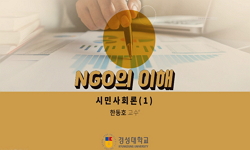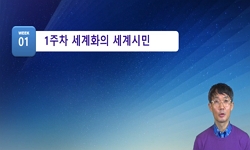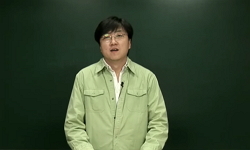<P>One of the legal requirement for a lawsuit that is frequently visited in environmental law is the issue of standing to sue. To bring a environmental litigation, whether it is civil or administrative, a plaintiff is required to have “appropr...
http://chineseinput.net/에서 pinyin(병음)방식으로 중국어를 변환할 수 있습니다.
변환된 중국어를 복사하여 사용하시면 됩니다.
- 中文 을 입력하시려면 zhongwen을 입력하시고 space를누르시면됩니다.
- 北京 을 입력하시려면 beijing을 입력하시고 space를 누르시면 됩니다.

환경소송에 있어서 원고적격의 문제점과 해결방안 = A study on the standing issues in civil and administrative litigation in environmental cases
한글로보기https://www.riss.kr/link?id=A107577619
-
저자
-
- 발행기관
- 학술지명
- 권호사항
-
발행연도
2010
-
작성언어
-
- 주제어
-
등재정보
KCI등재
-
자료형태
학술저널
-
수록면
121-144(24쪽)
- 제공처
-
0
상세조회 -
0
다운로드
부가정보
다국어 초록 (Multilingual Abstract)
<P>One of the legal requirement for a lawsuit that is frequently visited in environmental law is the issue of standing to sue. To bring a environmental litigation, whether it is civil or administrative, a plaintiff is required to have “appropriate individual interest”.</P><P> To sue an administrative agency, the plaintiff must demonstrate standing by showing that he or she has “legal interest to revocate agency"s action”. Korean Supreme Court has repeatedly held that “legal interest means individual, direct, concrete interest protected by legislation on which agency"s action is based”. The Court relied on a “zone of interests” test until 2006, which means citizens only living within the zone of environmental impact assessment may have legal interest. However, it changed its views by conferring standing to the out-of-the-zone citizens in 2006.</P><P> However, the Supreme Court has still maintained its opinion that “legal interest cannot be found for the general, indirect, abstract interest which is commonly enjoyed by general citizens”. Hence non-governmental organization(hereinafter, “NGO”), which doesn"t possess any property within the zone in its name, has never been conferred standing.</P><P> This view of the Court covers most of the environmental dispute, however, there is a loophole. Even though the plaintiff suffers no individual, concrete harm, the society as a whole may still be injured by pollution, the animal extinction, etc. But it is also risky to give general standing to all citizens, because the court has already had enough caseloads they cannot handle. Hence, I suggest to give NGO standing to sue in a limited circumstances where no one can claim injury despite of real harm to the nature. To prevent frivolous lawsuit, appropriate NGO with standing should be qualified by the Governmental Agencies or Courts before it files a complaint.</P>




 ScienceON
ScienceON





